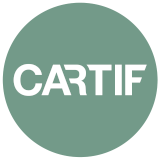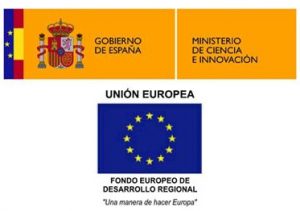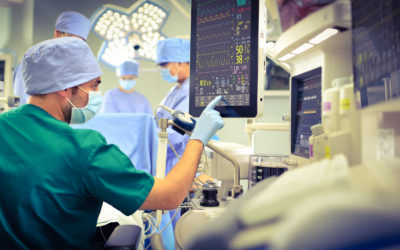Collaboration Challenges
PROGRAMMES R&D

PROGRAMES R&D
Collaboration Challenges
Description
The objective of the Challenges-Collaboration call is to support cooperative projects between companies and research organizations, public and private, in order to promote the development of new technologies, the business application of new ideas and techniques, and contribute to the creation of new products and services.
Aid to finance the actions provided for in the call commonly takes the form of a loan, a reimbursable advance ERDF and a subsidy, depending on the type of beneficiary: public or private companies and public or private research organizations.
These are projects with a budget of over € 500,000 to which the business side must contribute at least 60% without any participating entity contributing less than 10% of the budget.
All expenses related to the execution of the project are financed, limiting the participation of technical personnel to social security contribution groups 1,2 or 3.
CARTIF participation
During the 2010-2017 period, special emphasis is placed on NATIONAL COLLABORATION PROGRAMS, such as INNPACTO, CHALLENGES-COLLABORATION or the AVANZA Plan, obtaining good results for both the center and the companies with which it collaborates.
By participating in these and other international programs, the Center implements its policy of collaboration with national entities. The objective of the Center’s Management is to achieve business internationalization and contribute to increasing the competitiveness of Spanish companies, which must be drivers of generating wealth and richness in innovation systems.
In total, between the two programs, INNPACTO and CHALLENGES-COLLABORATION 50 projects are obtained, which means a total of € 10M awarded to the Center and collaboration with more than 120 companies at the regional and national level. Furthermore, the implementation of these projects has led to the opening of new opportunities for national and international collaboration thanks to the experience gained.
Thanks to the implementation of these projects, the Center has reinforced its knowledge and skills acquired in the different technical topics that are to be addressed in SOCIAL CHALLENGES. Added to that, the Center has increased and valued its know-how, which endows it with the desired and optimal ability and capacity to successfully undertake and execute new experimental development projects that generate results close to the market.
More particularly, under the COLLABORATION CHALLENGE the Center has implemented the following projects.
Program summary sheet
Summary file in PDF format:
DownloadThematic blocks:
(R1)Health, demographic change and well-being
Short description:
Defined in the State Plan for Scientific and Technical Research and Innovation 2017-2020, it is evident that research in Health and the National Health System as a fundamental development framework, constitute a strategic vector for policies to promote and coordinate R&D&I in our country, which must consider, as fundamental aspects, (a) research on the most prevalent diseases; (b) clinical investigation of human diseases; (c) public health and health services; (d) the rehabilitation and development of assisted and oriented settings for chronicity; (e) rare diseases; (f) the biological bases of the disease and (g) the development of nanomedicine and personalized medicine in which the challenge is to treat the individual and not the disease.
This innovative approach is all the more necessary as the Health Services must maximize the use of resources in order to be able to implement activities aimed at the prevention and early detection of pathological processes in a financial sustainability strategy of the system, which, In the long term, will allow an extension of the culture of health and, therefore, a decrease in the burden of disease on society as a whole.
Link to the knowledge area with which it is related:
(R2) Food safety and quality; productive and sustainable agricultural activity, natural resources, marine and maritime research
Short description:
Defined in the 2017-2020 State Plan for Scientific and Technical Research and Innovation, this challenge is to increase production and the added value of food, food and non-food products, and to reduce external dependence on raw materials, supplies and technologies; adapting food to new consumer demands, through research, innovation and new developments in production, transformation, packaging and distribution processes, and guaranteeing safety and quality throughout the food chain. In addition, in the case of Spain it is necessary to advance in the conservation of natural resources, particularly in the efficient use of water, in the fight against soil erosion, droughts, forest fires, and the protection of our agro-ecological systems, its biodiversity and the conservation of seas, oceans and the coastline.
Link to the knowledge area with which it is related:
FOOD, NATURAL RESOURCES, CIRCULAR ECONOMY,BIOTECHNOLOGY.
(R3) Safe, efficient and clean energy
Short description:
Defined in the 2017-2020 State Plan for Scientific and Technical Research and Innovation, which establishes that a sustainable generation and distribution of energy that respects the environment, economically affordable and socially acceptable, is the basis for ensuring a sustainable supply, competitive and secure energy that enables adequate economic growth and social welfare.
The specific objective of this CHALLENGE is to promote the transition towards an energy system that allows reducing dependence on fossil fuels in a scenario where, simultaneously, their scarcity, the growth of global demand and the its impact on the environment is gathered.
Link to the knowledge area with which it is related:
(R4) Intelligent, sustainable and integrated transport
Short description:
Defined in the 2017-2020 National Plan for Scientific and Technical Research and Innovation, the CHALLENGE’s main objective is to promote the development of a transport system and its linear and nodal infrastructures that efficiently use resources and are competitive, safe and affordable supporting balanced economic growth and improving competitiveness, reinforcing territorial cohesion and accessibility, and promoting functional integration through an intermodal approach. Regarding energy, priority will be given to R& D&I initiatives aimed at reducing costs and allowing an efficient use of energy resources in this area and considering the quality requirements of citizens, preserving the environment and advancing in progressive replacement from the use of non-renewable and CO2-intensive resources.
Link to the knowledge area with which it is related:
(R5) Action on climate change and efficiency in the use of resources and raw materials
Short description:
Defined in the 2017-2020 National Plan for Scientific and Technical Research and Innovation, the objective of the CHALLENGE in action on climate change is to promote the generation of scientific knowledge about the causes and effects of climate change and the mitigation thereof, including processes, mechanisms, functioning and interactions of the oceans, terrestrial and marine ecosystems and the atmosphere. In addition, it contemplates the analysis of adaptation and mitigation alternatives in relation to climate change, whose horizontal nature makes it necessary to promote the creation of synergies between different existing research groups, companies and social actors.
The targeted R&D&I activities must enable the questions posed in the “National Plan for Adaptation to Climate Change (PNACC)” to be answered and the R&D&I actions to be taken in the area of climate change mitigation that are horizontal in nature, impacting practically all sectors of economic activity -transport, residential; commercial and institutional, waste, forestry, energy, agriculture and livestock, etc.
Thus, R & D & I activities together with sectoral policies share the final objective of favoring the transition to a low carbon economy that allows progress towards sustainable development.
Link to the knowledge area with which it is related:
BIOTECHNOLOGY, NATURAL RESOURCES, CIRCULAR ECONOMY
(R6) Changes and social innovations
Short description:
Defined in the 2017-2020 National Plan for Scientific and Technical Research and Innovation and focused on the fact that in recent years there have been far-reaching social transformations that pose significant challenges for Spanish society. These include educational expansion, the new configuration of the occupational structure, the progressive incorporation of women into the world of paid employment and the social, economic and cultural impact of migration flows.
On the other hand, the processes of globalization of the economy and the Europeanization of public policies show their contribution to the worsening of the financial crisis, debt crisis and recession and the impact on economic growth and job creation. The changes and trends mentioned, which can be classified as structural, bring with them new realities, questions and questions to which scientific research in Social Sciences and Humanities must contribute to answer to improve our understanding of reality, the quality of public policies and the strategies of economic and social actors.
Link to the knowledge area with which it is related:
(R7) Economy and digital society
Short description:
The National Plan for Scientific and Technical Research and Innovation 2017-2020 reflects on the fact that over the next few years, no sector can be left out of this transformation that will change the way of doing business, the products and services available, the channels of sale or consumer relationship mechanisms. Taking advantage of the industrial, commercial and service provision opportunities related to this evolution process represents one of the main challenges for the country’s economy.
ICTs as key factors in improving the competitiveness of companies and the efficiency of Administrations are included in the State Subprogram for Essential Facilitating Technologies, where their adoption and use is promoted, especially by the business community. However, ICT and associated services constitute an intensive sector in R + D + I, whose progress has a transversal and multiplying effect on a significant number of key activities in the Spanish economy. Therefore, ICTs are a future area from the point of view of scientific, technological advances and innovations and at the same time they constitute a factor of modernization of the rest of the economic sectors including those such as tourism, construction, building or transportation, among others, are considered mature.
Link to the knowledge area with which it is related:
INDUSTRY 4.0, INFRASTRUCTURE,SMART CITIES, ENERGY POLICY, SMART GRIDS,MANUFACTURE,
(R8) Security, protection and defense
Short description:
The State Plan for Scientific and Technical Research and Innovation 2017-2020 reflects on the fact that the globalization process begun in previous decades finally translates into a growing interdependence that increases the vulnerability of our society and citizens as well as institutions, principles and values that have allowed the development of the principles of coexistence and governance of European societies. The nature of this CHALLENGE is global and of the first magnitude as a consequence of international events and the processes of social, political and strategic change that are taking place. The objective of this CHALLENGE is to contribute to the development of technologies and innovations that reinforce security and defense capabilities at the national level and allow the development of a competitive international security and defense technological fabric.
Link to the knowledge area with which it is related:

Responsible

Irene Hompanera Velasco
Programs Department
Some figures
Projects
Business
Million euros
Related projects
SOLUCII
The SOLUCII project generate a technical advance that allows the development of an innovative support system for the comprehensive analysis of patients in intensive care units with support for medical decisions based on ICTs.
MODINTECO
The aim of MODINTECO project is to develop prototypes of Automatic Tool Changers for milling machines, modular and adaptable, intelligent and autonomous, universal..
CIBIC
The CIBIC project arises with the objective of improving the services provided by the companies of conservation of infrastructures, based on the application of new technologies to carry out the concept of intelligent systems that will help to improve the quality and the innovation of these services.


